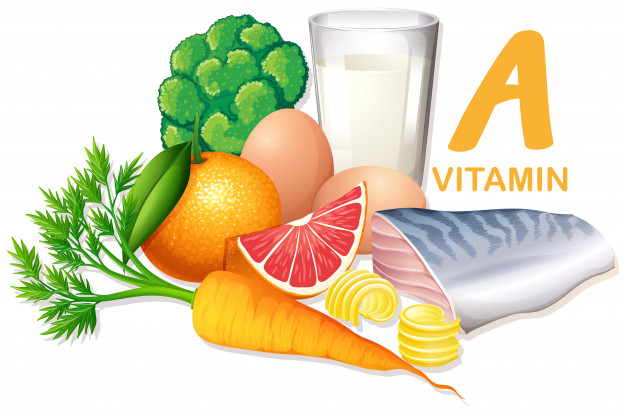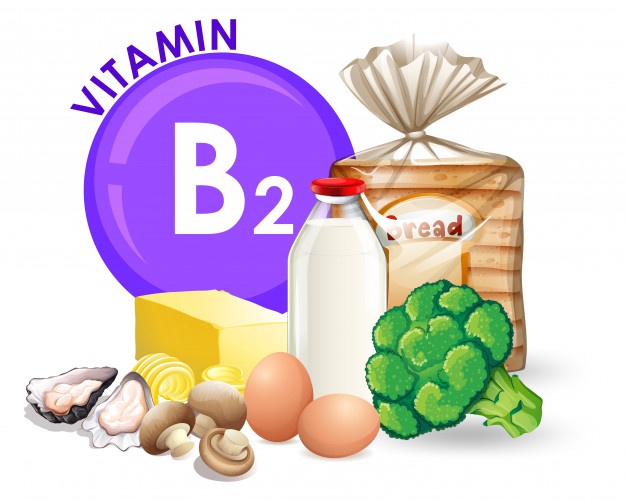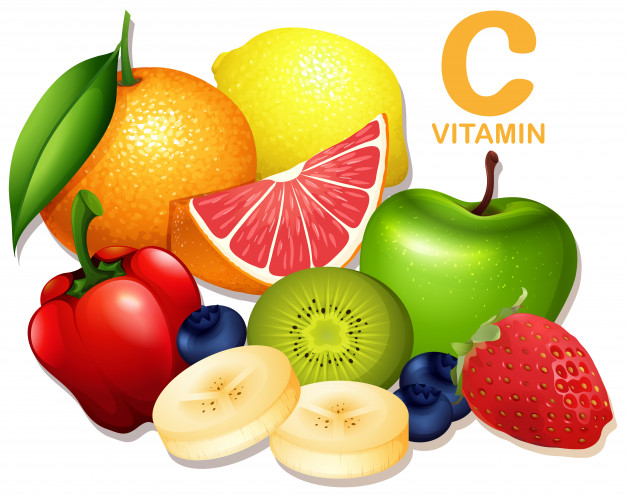Vitamins are vital organic compounds that our bodies need in small amounts to function optimally. They play a crucial role in boosting the immune system, enhancing energy levels, and maintaining overall health. In today’s fast-paced world, where diet and lifestyle are constantly challenged by stress and environmental factors, understanding the importance of vitamins is more critical than ever.
This in-depth guide covers everything you need to know about vitamins, including their benefits, potential deficiencies, and how the right vitamin supplements can support your well-being. Whether you’re looking to improve your skin health, boost your metabolism, or simply support your immune system.
Type of Vitamin
Vitamin A: Essential for Vision, Immune Function, and Skin Health

Vitamin A is a fat-soluble vitamin that is indispensable for maintaining healthy vision, skin, and immune function. Often found in colorful fruits and vegetables, as well as fortified dairy products, Vitamin A helps protect against infections and supports cell growth.
- Vision and Eye Health: Vitamin A is crucial for the formation of rhodopsin, a pigment found in the retina that allows you to see in low-light conditions. A deficiency in Vitamin A can lead to night blindness and other vision issues.
- Immune Support: This vitamin strengthens the immune system by maintaining the integrity of skin and mucosal cells, which serve as barriers against pathogens.
- Skin and Cellular Health: Vitamin A promotes healthy skin by aiding in cell production and repair, which is essential for maintaining a youthful complexion.
For more detailed information on Vitamin A’s benefits and dietary sources, visit the NIH Office of Dietary Supplements.
Vitamin B1 (Thiamine): Energize Your Metabolism and Support Nervous System Function

Vitamin B1, commonly known as thiamine, plays a pivotal role in converting carbohydrates into energy. It is also essential for the proper functioning of the nervous system.
- Energy Production: Thiamine helps convert glucose into energy, making it a key player in maintaining overall vitality and reducing fatigue.
- Nervous System Health: Adequate thiamine levels are necessary for the optimal functioning of nerves and muscles. It supports cognitive function and is linked to improved memory and focus.
- Metabolic Support: A balanced intake of Vitamin B1 supports a healthy metabolism, which is particularly important for those managing their weight and energy levels.
Learn more about the benefits of thiamine by checking out insights from Healthline’s Vitamin B1 Guide.
Vitamin B2 (Riboflavin): Key to Energy Production and Cellular Function

Vitamin B2, or riboflavin, is essential for energy production and plays a critical role in cellular function and overall metabolic health.
- Energy Metabolism: Riboflavin helps in the conversion of food into energy by aiding in the metabolism of fats, proteins, and carbohydrates.
- Antioxidant Properties: It acts as an antioxidant, reducing oxidative stress and protecting cells from damage.
- Skin and Eye Health: Riboflavin supports the maintenance of healthy skin and eyes, reducing the risk of conditions like cataracts and skin disorders.
For further reading on riboflavin’s role in the body, refer to the NIH Office of Dietary Supplements – Riboflavin.
Vitamin B5 (Pantothenic Acid): Vital for Stress Management and Skin Health

Vitamin B5, known as pantothenic acid, is essential for synthesizing coenzyme A, a critical enzyme for fatty acid metabolism and energy production.
- Energy Conversion: Pantothenic acid is vital for converting carbohydrates, fats, and proteins into energy, making it crucial for maintaining a balanced metabolism.
- Stress Management: It plays a role in the production of adrenal hormones that help the body manage stress.
- Skin Health: This vitamin contributes to skin regeneration and repair, making it a popular ingredient in many skincare products.
Discover more about Vitamin B5 by visiting WebMD’s Pantothenic Acid Overview.
Vitamin B6: Crucial for Brain Health, Hormonal Balance, and Immune Support
Vitamin B6 is a water-soluble vitamin that significantly influences brain development and function, while also playing an important role in immune regulation and hormonal balance.
- Cognitive Function: Vitamin B6 is involved in the synthesis of neurotransmitters such as serotonin, dopamine, and gamma-aminobutyric acid (GABA), which are essential for mood regulation and cognitive performance.
- Hormonal Balance: It aids in balancing hormones, which can be especially beneficial for women experiencing hormonal fluctuations.
- Immune System Support: Adequate levels of Vitamin B6 are vital for maintaining a robust immune system, helping the body fend off infections.
For a deeper dive into the importance of Vitamin B6, explore the NIH Office of Dietary Supplements – Vitamin B6.
Vitamin B12: Boost Your Energy and Support Nervous System Health

Vitamin B12 is essential for red blood cell formation, nerve function, and DNA synthesis. Its role in energy production and neurological health makes it one of the most critical vitamins for maintaining overall vitality.
- Energy and Vitality: Vitamin B12 is well-known for its ability to boost energy levels by aiding in the production of red blood cells, which transport oxygen throughout the body.
- Nervous System Maintenance: It supports the maintenance of the myelin sheath, a protective covering around nerves, ensuring efficient nerve signal transmission.
- Cognitive Health: Regular intake of Vitamin B12 has been linked to improved memory and cognitive function, making it an essential nutrient for brain health.
For more comprehensive information on Vitamin B12, refer to Healthline’s B12 Guide.
Vitamin C: The Ultimate Antioxidant for Immune Support and Skin Health

Vitamin C is a powerful antioxidant that plays a multifaceted role in maintaining health, from boosting immunity to supporting collagen production for youthful skin.
- Immune Booster: Vitamin C strengthens the immune system by stimulating the production and function of white blood cells, which are crucial for fighting infections.
- Collagen Production: It is essential for collagen synthesis, which helps maintain skin elasticity and reduces the appearance of wrinkles.
- Antioxidant Protection: As an antioxidant, Vitamin C neutralizes free radicals, reducing oxidative stress and lowering the risk of chronic diseases.
For more details on the benefits of Vitamin C, check out the NIH Office of Dietary Supplements – Vitamin C.
Vitamin D: The Sunshine Vitamin for Bone Health and Immune Function

Vitamin D, often referred to as the sunshine vitamin, is unique because it can be synthesized by the body through exposure to sunlight. It plays an integral role in maintaining bone health and supporting immune function.
- Bone Health: Vitamin D is essential for calcium absorption, which is critical for developing and maintaining strong bones and teeth. A deficiency in Vitamin D can lead to osteoporosis and bone fractures.
- Immune Regulation: It supports the immune system by modulating the body’s inflammatory response and enhancing pathogen-fighting effects.
- Mood and Mental Health: Emerging research suggests that Vitamin D may also play a role in regulating mood and warding off depression.
For further reading on Vitamin D and its myriad benefits, visit Harvard Health’s Vitamin D Overview.
Vitamin E: Protect Your Cells and Promote Healthy Skin
Vitamin E is a potent antioxidant that helps protect cells from oxidative stress and supports skin health by reducing inflammation and promoting repair.
- Cellular Protection: As a powerful antioxidant, Vitamin E neutralizes free radicals that can damage cells, reducing the risk of chronic diseases.
- Skin Health: It is widely used in skincare products for its ability to moisturize and protect the skin from environmental damage, helping to reduce the appearance of scars and wrinkles.
- Cardiovascular Benefits: Some studies suggest that Vitamin E may help improve heart health by reducing oxidative stress and preventing the oxidation of LDL cholesterol.
To learn more about the benefits of Vitamin E, refer to the NIH Office of Dietary Supplements – Vitamin E.
Vitamin K: Essential for Blood Clotting and Bone Metabolism

Vitamin K is often overlooked but plays a critical role in blood clotting and bone metabolism. It is essential for maintaining healthy bones and preventing excessive bleeding.
- Blood Clotting: Vitamin K is vital for synthesizing proteins that regulate blood clotting, which is essential for healing wounds and preventing excessive bleeding.
- Bone Health: It works synergistically with Vitamin D to ensure proper calcium utilization in the body, thereby supporting bone density and reducing the risk of fractures.
- Cardiovascular Support: Emerging evidence suggests that Vitamin K may help prevent the calcification of arteries, contributing to improved cardiovascular health.
For additional insights on Vitamin K, explore the NIH Office of Dietary Supplements – Vitamin K.
Integrating Vitamins Into Your Daily Routine: Supplementation and Diet
While obtaining vitamins from a balanced diet rich in fruits, vegetables, lean proteins, and whole grains is ideal, many people turn to vitamin supplements to fill nutritional gaps. Whether you’re looking for natural sources or high-quality supplements, it’s essential to consult with a healthcare provider to determine your specific needs.
- Whole Food Sources: Incorporate a diverse range of foods that are naturally rich in vitamins. For instance, leafy greens, citrus fruits, nuts, seeds, and lean meats are excellent sources of various vitamins.
- Supplement Options: Look for supplements that are third-party tested for quality and efficacy. Websites like ConsumerLab provide reviews and ratings to help you choose the best vitamin supplements.
- Balanced Diet: A balanced diet ensures that you receive a synergistic blend of vitamins, minerals, and other essential nutrients necessary for optimal health.
Conclusion: Empower Your Health with the Right Vitamins
Understanding the diverse roles vitamins play in maintaining your health is the first step toward a vibrant, energetic life. From Vitamin A’s role in vision and skin health to the immune-boosting power of Vitamin C, each vitamin offers unique benefits that contribute to overall well-being. Whether you’re aiming to improve your energy levels, support your immune system, or enhance your skin health, incorporating the right vitamins into your daily routine can be transformative.
By embracing a balanced diet and considering high-quality vitamin supplements when necessary, you empower your body to fight off deficiencies, combat oxidative stress, and sustain long-term health. Regular intake of these essential nutrients not only supports immediate energy and cognitive functions but also paves the way for a robust immune system, improved metabolic health, and a more youthful appearance.
For further insights and expert advice on vitamins, explore trusted resources like the NIH Office of Dietary Supplements and Harvard Health Publishing. These reputable sources offer comprehensive information that can help you make informed decisions about your nutritional needs.
As you integrate these vitamins into your lifestyle, remember that consistency is key. Small, positive changes in your daily nutritional habits can lead to significant improvements in your health and well-being. Embrace the power of vitamins today and take the first step towards a healthier, more energetic, and fulfilling life.









